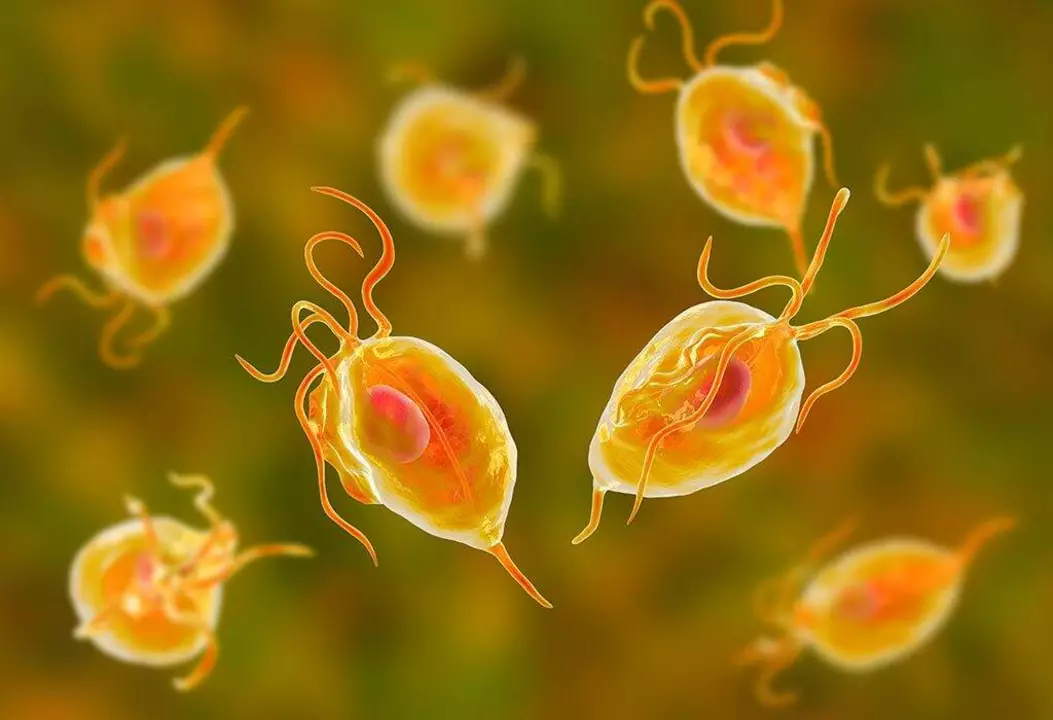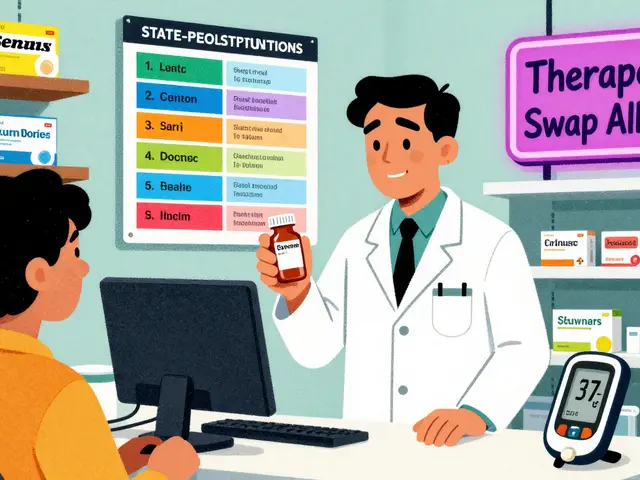Understanding Trichomoniasis: The Basics
As a sexually active individual, it's important to be aware of the various sexually transmitted infections (STIs) that one may come across. One of the most common STIs is Trichomoniasis, which is caused by the protozoan parasite, Trichomonas vaginalis. This infection mainly affects women, but men can also be infected. In this section, we will delve into the basics of Trichomoniasis, its symptoms, and how it is transmitted.
Trichomoniasis is mainly transmitted through sexual contact with an infected person. This means that the risk of contracting the infection increases with the number of sexual partners one has. Symptoms of Trichomoniasis include itching, burning, and discharge in women, while men may experience irritation and discharge. However, it is important to note that many people with the infection do not show any symptoms at all. This makes it crucial for sexually active individuals to get tested regularly to avoid unknowingly spreading the infection to others.
Preventing Trichomoniasis: Safe Sex Practices
Preventing Trichomoniasis, like any other STI, begins with practicing safe sex. This means using barrier methods like condoms and dental dams during sexual intercourse. These barriers not only protect against Trichomoniasis but also against other STIs like HIV and gonorrhea. It is essential to use a new condom or dental dam with each sexual encounter, as reusing them can increase the risk of transmitting infections.
Another crucial aspect of safe sex is communication with your sexual partners. Discussing your STI status and ensuring that both you and your partner have been tested recently can significantly reduce the risk of contracting Trichomoniasis or any other STI. Remember, knowledge is power when it comes to preventing the spread of infections.
Regular Testing: The Importance of Staying Informed
As mentioned earlier, many people with Trichomoniasis do not exhibit any symptoms. This makes regular testing an essential aspect of managing and preventing the spread of the infection. Both men and women should get tested for Trichomoniasis and other STIs regularly, especially if they are sexually active with multiple partners or have a history of STIs.
Testing for Trichomoniasis usually involves providing a urine sample or a swab from the genital area. The results are typically available within a few days, allowing you to take the necessary precautions if you test positive. Remember, the sooner you know your status, the sooner you can take steps to protect yourself and your partners from contracting the infection.
Treatment Options: Overcoming Trichomoniasis
If you test positive for Trichomoniasis, don't panic. The infection is usually treatable with a course of antibiotics, most commonly metronidazole or tinidazole. It is essential to complete the prescribed course of medication to ensure that the infection is entirely eradicated from your system. Additionally, it is crucial to abstain from sexual activity during treatment, as this can help prevent the spread of the infection to your partners.
After completing the treatment, it is a good idea to get retested to confirm that the Trichomoniasis has been fully cleared. This will provide peace of mind and allow you to continue practicing safe sex without the fear of spreading the infection. Remember, the key to overcoming Trichomoniasis is prompt diagnosis and treatment, so don't hesitate to seek medical advice if you suspect you may have the infection.
Supporting Your Partner: Managing Trichomoniasis Together
Trichomoniasis can be an emotionally challenging experience, particularly if you're in a relationship. It is important to support each other through the diagnosis, treatment, and recovery process. This may involve accompanying your partner to medical appointments, discussing your feelings about the infection openly and honestly, and taking steps to ensure that both of you are well-informed about Trichomoniasis and its prevention.
Both partners should be tested and treated for Trichomoniasis to prevent reinfection. It is essential to abstain from sexual activity until both partners have completed treatment and been cleared of the infection. By working together and communicating openly, you can overcome Trichomoniasis and move forward with your relationship, armed with the knowledge needed to prevent future infections.








18 comments
Ashley Tucker
Oh wow, another 'safe sex' lecture. Because nothing says 'empowerment' like rubber sheets and fear-based messaging. I've had three partners in ten years and never once needed a dental dam. Guess I'm just lucky.
Michael Lynch
Honestly, the real issue isn't the infection-it's the shame attached to it. People get tested, they get treated, and then they feel like they've failed. But it's just a parasite. It doesn't define you. Chill out.
jackie cote
Regular testing saves lives. Period. If you're sexually active, you owe it to yourself and your partners to know your status. No drama. No guilt. Just responsibility.
ANDREA SCIACCA
Trichomoniasis... lol. You know what else is common? Government surveillance. They want you scared. They want you testing. They want you buying drugs. Wake up. This isn't medicine-it's control.
Camille Mavibas
I got tested last year after a bad date 😅 turned out negative but wow-so many people just ignore this stuff. Like it’s gonna disappear. It won’t. Get checked. 💪
Dr. Alistair D.B. Cook
Trichomoniasis?! You mean the same infection that's been around since the 19th century? And now we're treating it like some new plague? Also, metronidazole? That's just flagyl. And it tastes like metal socks. Why do we even call it by this fancy name? It's just a bug. A really annoying bug.
Hollis Hamon
I appreciate the info, but can we stop acting like condoms are a magic shield? They help-but they don't eliminate risk. The real protection is communication, trust, and knowing your body. Also, not all STIs show up on standard panels. Be curious, not just cautious.
Austin Levine
I tested positive last year. Treated in 48 hours. No big deal. My ex didn't get tested. We broke up. Life went on.
Matthew King
bro i got trich like 3 years ago and it was wild. no symptoms. just felt weird. got tested cuz my friend had it. doc gave me a pill. done. no one needs to make this a whole thing.
Gurupriya Dutta
I think it's important to remember that many people don't have access to testing or healthcare. The article assumes everyone can just walk into a clinic. Not everyone can. We need to talk about systemic barriers too.
Rika Nokashi
The medical establishment has weaponized STI awareness to create a culture of fear, and frankly, it's counterproductive. Why are we not discussing the role of hormonal contraceptives in altering vaginal flora and increasing susceptibility? No one talks about that. They just hand out condoms like candy and call it prevention.
Melissa Thompson
This article is laughably simplistic. You mention 'barrier methods'-but did you even mention that latex condoms have a 15% failure rate for Trichomoniasis? Or that tinidazole is now considered first-line in the UK but not here? Or that the CDC guidelines were last updated in 2015 and are already outdated? This reads like a high school health pamphlet written by someone who googled 'STDs' last night.
Allen Jones
They're lying. They say it's 'common' but they don't tell you the CDC is hiding the real numbers. I know someone who got it after a blood transfusion. Yeah. Blood. Not sex. They don't want you to know that. And the antibiotics? They're laced with microchips. I saw it on a documentary. 👁️
Don Moore
The treatment protocol outlined is accurate and evidence-based. Completing the full course of antibiotics is non-negotiable. Failure to do so contributes to resistance. Please prioritize adherence.
Ashley Tucker
Oh so now you're telling me I need to 'support my partner'? Like we're in some romantic comedy? I broke up with my last guy because he thought 'I didn't know I had it' was an excuse. Nope. Knowledge is power. Ignorance is negligence.
caroline howard
I love how people act like getting tested is embarrassing. It’s like going to the dentist. You don’t wait until your tooth falls out to care about it. 💅 Get checked. You’re worth it.
Andrea Swick
I’ve been a nurse for 18 years. I’ve seen men cry because they thought they were 'dirty' after a positive result. But here’s the truth: Trichomoniasis is the most common curable STI. It’s not a moral failing. It’s biology. Treat it. Move on. Don’t let shame silence you.
Amelia Wigton
The article fails to mention that Trichomonas vaginalis can persist in the gastrointestinal tract and potentially reinfect via oral-anal contact. This is critical for comprehensive prevention. Why is this omission occurring? Is it intentional? The omission of this route suggests a deliberate limitation of public health messaging.